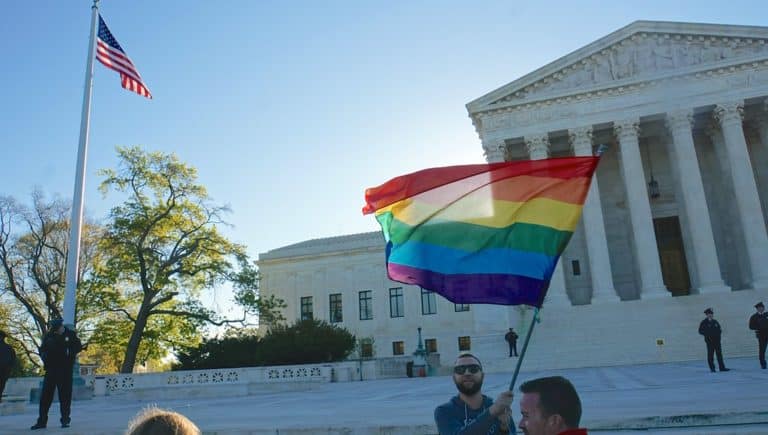Alexa Kissinger is a student at Harvard Law School.
Earlier this week in a series of tweets, President Trump announced that transgender individuals would be barred from serving in the United States military “in any capacity.” Transgender members have been able to serve openly since President Obama lifted the transgender ban in June 2016, after lifting the ban on gays and lesbians serving openly in 2010. Citing “tremendous medical costs and disruption that transgender in the military would entail,” President Trump’s sudden announcement reportedly took the Pentagon and other advisors by surprise.
By some estimates, the U.S. military is the single-largest employer of transgender people on the planet, with some sources estimating there are 15,500 transgender personnel in military service. According to the Washington Post, transgender individuals in America also have an unemployment rate of 15 percent, three times higher than the general population.
In the face of confusion and fear, on Thursday, the chairman of the Joint Chiefs released a statement to top military officers that there will be “no modifications” to the military’s transgender policy until the White House formally requests a policy change. The tenor of the statement indicated the department did not consider the president’s tweets a directive. The statement also emphasized that every service member “bar none” should and will always be treated with dignity and respect.
On the same day as President Trump’s pronouncement about barring transgender individuals from the military, the Justice Department filed an amicus brief saying Title VII does not cover employment “discrimination based on sexual orientation.” The brief was filed in Zarda v. Altitude Express in the Second Circuit, a case brought by a skydiving instructor who was fired because of his sexual orientation.
The Justice Department’s brief creates a split in the federal government’s position as the EEOC had already filed a brief in support of the plaintiff. Since its 2015 holding in Baldwin v. Foxx the EEOC has maintained that a claim of discrimination on the basis of sexual orientation necessarily states a claim of discrimination on the basis of sex under Title VII.
Circuits across the country are divided on the question of whether discrimination based on sexual orientation is considered sex discrimination under Title VII. This April in Hively v. Ivy Tech, the 7th Circuit held en banc that workplace discrimination against LGBT employees is covered by Title VII. The Eleventh Circuit, by contrast, declined to reconsider the case of another woman, Jameka Evans, who also alleges employment discrimination on the basis of her sexuality and gender non-conformity. Lambda Legal is challenging the Eleventh Circuit’s ruling which may be headed for the Supreme Court.
As reported by POLITICO, Republicans on the House Education and the Workforce Committee will introduce a “joint employer” bill. The legislation to be introduced at a press conference would reverse the NLRB’s 2015 Browning-Ferris decision which made it easier to hold corporations liable for workplace violations committed by their contractors and franchisees.







Daily News & Commentary
Start your day with our roundup of the latest labor developments. See all
February 20
An analysis of the Board's decisions since regaining a quorum; 5th Circuit dissent criticizes Wright Line, Thryv.
February 19
Union membership increases slightly; Washington farmworker bill fails to make it out of committee; and unions in Argentina are on strike protesting President Milei’s labor reform bill.
February 18
A ruling against forced labor in CO prisons; business coalition lacks standing to challenge captive audience ban; labor unions to participate in rent strike in MN
February 17
San Francisco teachers’ strike ends; EEOC releases new guidance on telework; NFL must litigate discrimination and retaliation claims.
February 16
BLS releases jobs data; ILO hosts conference on child labor.
February 15
The Office of Personnel Management directs federal agencies to terminate their collective bargaining agreements, and Indian farmworkers engage in a one-day strike to protest a trade deal with the United States.